Hiring a personal trainer shouldn't be about just walking into a gym and accepting whoever is free at that moment. You can, and should, be discerning about who you hire and why you do it. Why? Because it's your money, your body, and your health! And because by being more discerning on the front end, you'll increase the chances that you'll have more success with whomever you end up working with.
I'm going to deflate a couple of the biggest myths about how to identify a good trainer, discuss the qualities that make for a good trainer so you know how to identify one when you meet one, and cover what questions you should ask any trainer before hiring them.
If you want to see what my style of coaching looks like in action, check out the True Muscle: 9 Weeks to Elite Fitness program in Bodybuilding.com BodyFit Elite.
Is a jacked/cut/fit trainer a better choice?
One of the most stubborn training myths is that the biggest, strongest, or leanest people in the gym or on social media are the most qualified to give smart, safe, and reliable training advice. Sometimes they are, but often they're definitely not.
First off, the idea that someone must have personally achieved a certain level of success in a sport in order to be a reliable source of technical information is, and always has been, false. Look no further than professional sports for proof. Many of the best players turn out to be terrible coaches, while others who never even played the game turn out to be top-notch coaches who've helped many athletes realize their potential.
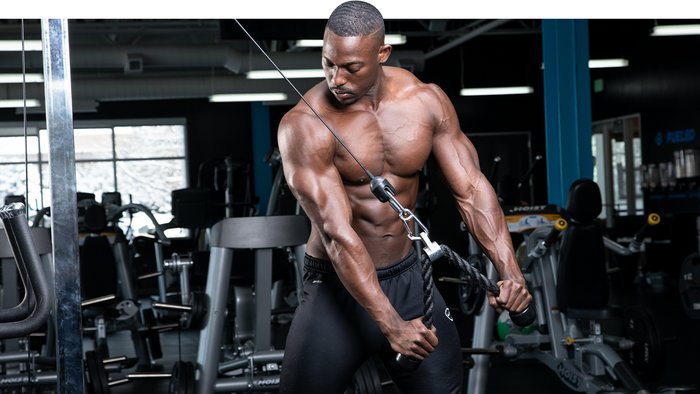
So, what did these non-talented coaches have that the star players didn't? First, a deep knowledge of the technical and tactical aspects of the game. And second, the ability and willingness to simplify and communicate that knowledge in a way that athletes can use to their advantage. The same thing can be said for trainers.
Heck, none of Michael Jordan's coaches were nearly as good as he was at playing basketball, but they were able to help him realize his potential. Not to mention, saying that you're not qualified to coach someone unless you've had personal experience in the same arena is also to say that male trainers can't effectively train female clients, and vice versa—which isn't true.
As I wrote in the article "Strong vs. Toned: The Truth About Gender-Specific Workouts," the two genders share a lot more than we differ. You may benefit from the emotional and psychological aspects of training with someone the same sex as you, but a competent trainer can handle the training part for both.
Secondly, the biggest, leanest, and fittest people have often achieved their results despite what they know, not because of it. They're gym rats who organize their lives around gyms and kitchens. This might make them a great resource to you on the lifestyle and discipline of training and dieting, but it doesn't mean they can write you an individualized program based on your goals, abilities, and medical history.
Should I judge a trainer by how their clients look?
In a normal gym setting, absolutely not. The reality is that the majority of clients most trainers will work with are recreational exercisers. This means they're really chasing weight-management and general fitness; most aren't genuinely interested in becoming gym rats who organize their entire lives around gyms and kitchens. Plenty will openly tell you that they're not at all interested in changing their eating habits, and they're exercising for defense, to offset all the foods they love to eat.
Both of those situations will limit the way that a trainer's sessions translate into so-called results, but it doesn't mean the trainer isn't doing a good job. Put another way, you can't blame a trainer for someone not make drastic physical changes if they only work with the trainer once or twice a week, and then go home and eat like a teenager and do absolutely nothing the rest of the time.
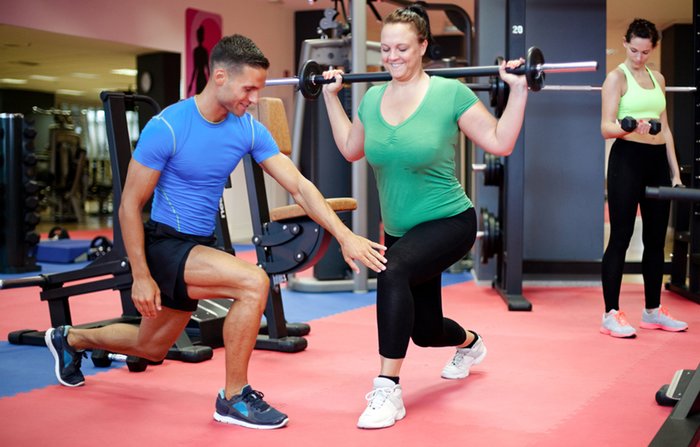
These folks often say things like, "I don't want to think when I'm working out." They want a great experience that challenges them, but doesn't hurt them. They often gauge their training success by how much they've enjoyed each workout, how they feel at the end of the workout, and by the fact that they've completed a certain number of workouts per week.
And guess what: There's nothing wrong with that.
If they stick with it, these clients will gradually become fitter, feel better, and maybe see some solid improvement on health markers. But plenty of competent fitness professionals (including yours truly) have long-term clients who don't look much different or don't have impressive increases in their lifting numbers compared to when they started.
Should I pick a trainer who will push me toward serious results?
Many personal trainers have this elitist idea that you're basically wasting your time in the gym unless you're training with a specific focus on physique or performance measures. However, this ignores the numerous well-evidenced physical and mental health benefits of simply getting regular exercise and strength training, period.
These include:
- Improved mood
- Improved sleep
- Preservation of bone mass
- Enhanced feeling of energy and well-being
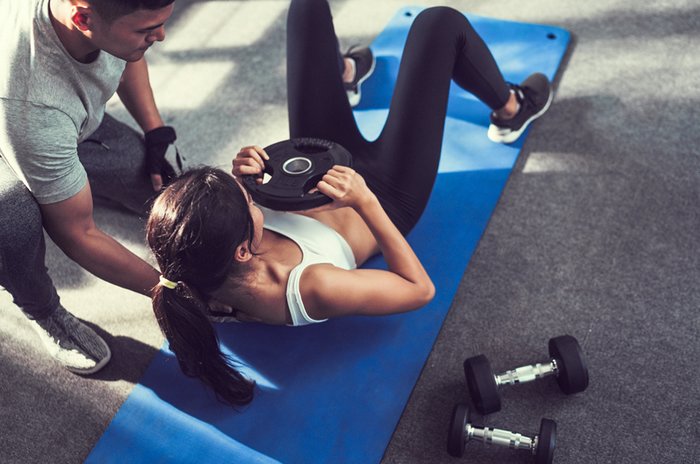
Many confused trainers look down on people who exercise for fitness and health, saying that these people are satisfied with being "mediocre." This implies that people who aren't interested in organizing their entire lives around gyms and food are inferior, and those who obsess over those things are somehow superior.
I can confidently tell you neither is true.
These same trainers continue to be frustrated, wondering why some people "don't get it" or don't seem to care as much as they do, and ultimately end up not sticking around. But it's usually not that these people don't care, it's that they don't care about what the trainer wants them to care about. These trainers are the ones who just don't get it.
These personal trainers fail to realize that to most people, "getting results" from exercising isn't about achieving impressive deadlift numbers or building a barn-door back—those are gym-rat goals. For many people, it simply means staying active, overcoming physical challenges, and enjoying each workout.
Those are respectable and reasonable goals that personal trainers should encourage and be proud to facilitate.
What makes a good personal trainer?
Given what I just finished saying, you might expect me to claim that a personal trainer's biggest responsibility is to provide motivation and inspiration for people to exercise. After all, you're not going to get very far as a personal trainer unless people like being around you, you're relatable, communicate well, and they enjoy the environment and experience you provide.
That said, just having a relatable personality is only a small part of what makes a good personal trainer. Ultimately, this job isn't just about how you motivate people, it's also about what you're motivating them to do in the first place.
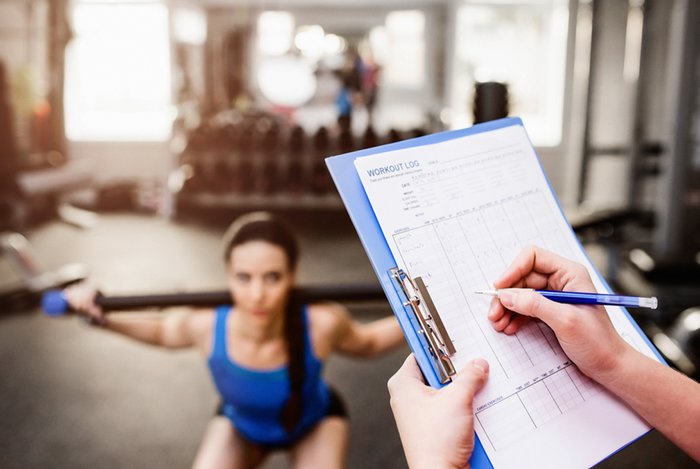
Put simply, a fitness professional is (supposed to be) an exercise prescription expert. Let's unpack this a bit.
Many people, including many fitness professionals, think that simply knowing a wide variety of exercise variations, and how to properly perform/coach them, is what makes for a great personal trainer. Those elements are certainly part of the job, but if that's all you bring to the table as a professional, there's nothing that separates you from the everyday exercise enthusiast who has memorized how to perform a bunch of exercises from videos, websites, magazines, and books.
You must possess more expertise if you want to provide real value. You need to be confident and capable in:
- The individualization of exercises
- The application of exercises
- The organization and prioritization of exercises
In other words, what separates a great trainer from a not-so-great one, or a great trainer from an exercise enthusiast is:
- Knowing what exercises not to do based on a client's individual ability, physiological framework, medical profile, etc.
- Knowing how to utilize, prioritize, and organize exercises (i.e., program design) to create a training stimulus to achieve specific adaptations
This is the stuff that you can only learn through long hours spent analyzing exercises, the principles of training, and biomechanics. Then, more long hours trying them out in the gym and with clients. Then, still more long hours analyzing what worked and what didn't, and learning from what you've seen.
Training trends come and go like clothing styles, but a great personal trainer today will have most of the same qualities as a great trainer 10, 20, 50, and 100 years from now. Why? Because the body and its biomechanics never go out of date.
How do I know if my trainer is an expert?
Easy: Ask them the right questions! But before you do that, let's discuss what being an expert means. In a word, it's learning—not how much they know, but how committed they are to continuing education.
Fitness professionals generally fall into three tiers based on their interest and efforts in pursing their continued education. Each tier represents a much smaller population of fitness professionals who fit the corresponding criteria than the one preceding it.
Tier 1: This tier contains the largest population of trainers. They get much of their information from predominantly mainstream sources like pro athletes and fitness celebrities, both of which are notoriously unreliable sources and prone to pushing pseudoscience.
Trainers in this circle often find the quickest and easiest method of acquiring CECs/CEUs to keep their certification current. They are also prone to digging up new, trending exercises and workout ideas they can use to "push" their clients.
Tier 1 is also packed with fitness professionals who spend most of their educational time and money learning about the training concepts and techniques that are aligned purely with their own training goals, instead of prioritizing better and more effective ways to help clients achieve their goals.
In action, this can feel to a client like a trainer is doing something to them rather than doing something for them. There's a big difference.

Tier 2: Trainers in this category spend more time, energy, and resources on their continuing education than those in the previous category. Because of this, they tend to have a much better idea of what is relevant in their field and know reliable sources of scientifically-founded training information
These trainers often attend live events and purchase informational products—whenever they can afford them—purely for the education provided, not simply for the CECs. In their free time, they're often reading a wide variety of training-related books, articles, blogs, and research studies.
Tier 3: These are the rare trainers who aren't just passionate and dedicated to regularly pursing their continued education, they're obsessed with it.
They spend just about all of their free time and expendable income on their continuing education; constantly reading articles and research, buying books and video courses/products, and attending as many live events as they can afford. Although these are work related, to the trainers in this circle, engaging in their continuing education is enjoyable and exciting to them.
This is the type of trainer you want to hire! Unfortunately, this category covers a much smaller portion of the trainer population than those in the previous categories. A staff of 20 or more trainers may not have a single trainer in this category, and if they do, it's usually just one or two. On the other hand, there are some smaller, more private training facilities whose entire staff of trainers fall in this category. Those places are special!
It's important to note that, in many cases, Tier 3 trainers aren't the strongest, fittest, or leanest people in the gym. Although they certainly work out, these top trainers spend far more time focused on the technical and educational aspects of training. They want to be qualified to provide reliable advice to other people, not just look qualified.
What questions should I ask a personal trainer before hiring them?
Just about everyone who is training clients shares a passion for helping people, but that passion alone doesn't make them a skilled trainer. That skill comes from continuing education and a dedication to improving and refining their craft.
When you're looking for a trainer, ask these questions before you agree to work with them. No, there's not a "right" answer to any of them; they're really more conversation starters.
Ask the questions, pay attention to their response, and you should be able to tell how serious they are about their role as a fitness professional.
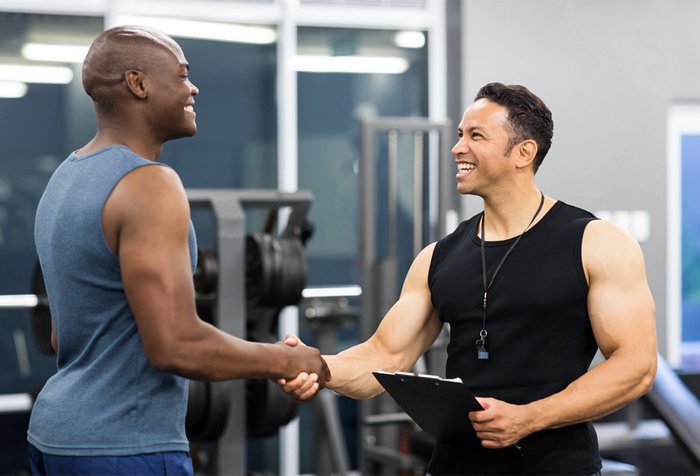
10 Questions to Ask Before Hiring a Trainer
- Where do you get most of your fitness and health information from?
- How often do you pursue continued education?
- How many hours a week do you spend on learning or thinking about programming for your clients?
- What's the last thing you did for your continued education?
- What do you plan on doing next for your continued education?
- Here's my goal. What's the best way to achieve it?
- Why is your method better than other fitness training methods for helping me to achieve my goal?
- Do you use the same basic training method for everyone you work with? Why or why not?
- Have you ever worked with others like me (similar age, sex, body type, medical history, etc.) who have the same goals?
- If so, could I talk to them about their experience in working with you and learn what to expect?
It may feel bold to ask such personal questions. That's good. Start your relationship with a trainer on an equal footing of respect and openness, and both sides will benefit. You'll learn from them, they'll also learn from you—it's true, they will—and both of you will end up in a better place than you were before.
Want to see what it's like to push it in the gym with an elite trainer like Nick Tumminello as your coach? Check out True Muscle: 9 Weeks to Elite Fitness in Bodybuilding.com BodyFit Elite. In three complete video workouts, Nick guides former NFL star Steve Weatherford through every rep and set, from warm-up to cool-down, and shows him—and you—what serious training is meant to feel like!

